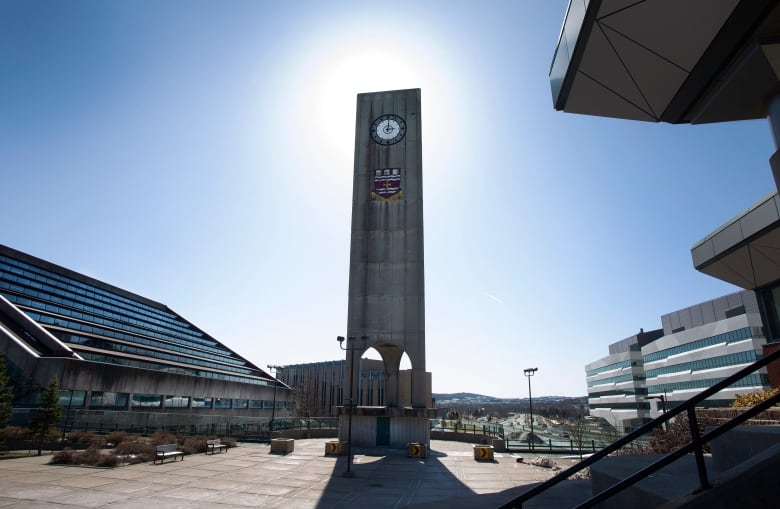Hiking tuition fees won't get us through a fiscal crisis, and could harm those who need help the most
It's time to hunker down and protect those whose opportunities may vanish

This column is an opinion by Joshua Fleming, who lives in St. John's.
Since 1999, students in Newfoundland and Labrador have benefited from a tuition freeze. However, in response to the provincial budget, Memorial University president Vianne Timmons said tuition fee hike is inevitable.
Most of us accepted that this long-standing tuition freeze had to end at some point, but I'd like to present a counterargument.
I graduated from a philosophy program and went on to do two master's degrees in policy studies. I was the vice-president academic of the Grenfell College Student Union, and sat on Memorial University's senate in 2008-09. I always thought our province was going in the right direction with tuition.
My thought is that every student deserves a needs-based grant there are no wealthy students, just students with wealthy parents. European countries recognize this, but we seem to favour an American approach.
Having worked in government finance for the last five years, let me try to convince you that the $68 million required to address the fiscal crisis should come from progressive taxes and not tuition.
Students don't have the money
Students pay for their education in opportunity cost. When you're studying full time you can't work full time. Borrowing for these costs is painful enough without the added burden of tuition. Paying for textbooks has become a significant burden as costs have increased 88 per cent between 2006 and 2016.
Some will argue that the taxpayer shouldn't subsidize a pursuing liberal arts education, a degree that really doesn't prepare a person for the workforce. This might anecdotally sound correct, but data shows that liberal arts graduates earn 40 to 50 per cent more than the average income. Also, liberal arts are cheap to teach since large post-secondary cost drivers are STEM faculties. As an example, a lab is more expensive to run than a guy paid to teach, say, Foucault.

Don't forget why it's called Memorial University
I took this from the MUN website: "By the end of the war nearly 1,500 of our brave soldiers had died in battle. This tragedy would be mourned for generations to come, therefore it was decided that a school would be established as a memorial to those Newfoundlanders who had died in active service."
Perspectives matter: Read more N.L. opinion columns from our contributors
The cost of post-secondary education has been paid, and it was paid by those 1,500 boys who died in battle. We have an obligation to help the youth of this province reach their full potential with all the advantages of a post-secondary education. Memorial isn't like other universities; it honours lives lost and grieving families. When we founded Memorial, we took a policy direction that tied the education and success of our students to lives lost. Creating barriers through tuition does not honour them.
Our trades are the backbone of our economy
As it stands, our economy is based on natural resource extraction, a sector that requires skilled labourers. The College of the North Atlantic has been exceptional at responding to the changing needs of our economy, and it would be short-sighted to place barriers to their efforts to recruit students.

Research shows that a $100 increase in tuition and fees would lead to a decline in enrolment of about 0.25 per cent. Our new graduates are the most agile members of our workforce and necessary to respond to changing labour needs.
There are other ways to get the capital required to deal with the fiscal crisis. Atuition increase is likely the most regressive measure.
Tax those who can afford it, protect those who can't.
This fiscal crisis is a storm, but as Newfoundlanders and Labradorians, we've dealt with storms before. Hunker down, make sure our most vulnerable are protected, and wait for it to pass.













_(720p).jpg)


 OFFICIAL HD MUSIC VIDEO.jpg)
.jpg)



























































































